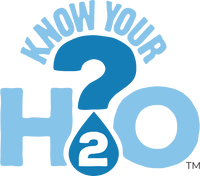Using Artificial Intelligence (AI) Drinking Water Topic Grok 2 mini Know Your H20
1. Chemistry of Water:
Chemical Formula: H2O, comprising two hydrogen atoms and one oxygen atom.
Unique Properties: Water has several unique properties like high heat capacity, cohesion, adhesion, and its ability to act as a universal solvent due to its polarity.
2. Water Quality:
Purity: Water can contain various minerals, chemicals, bacteria, and pollutants. Knowing the quality involves understanding parameters like pH, total dissolved solids (TDS), hardness, and presence of contaminants like lead, arsenic, or chlorine.
Testing: Regular testing for drinking water quality is crucial to ensure it's safe for consumption. This can include checking for bacteria like E.coli or chemicals like nitrate.
3. Sources of Water:
Natural Sources: Rivers, lakes, springs, and groundwater (aquifers).
Municipal Supply: Treated water provided by local water supply systems.
Bottled Water: Comes from various sources, often purified or mineralized.
4. Treatment and Purification:
Methods: Filtration (carbon, reverse osmosis), distillation, UV treatment, chlorination, and ozonation are common methods used to purify water.Home Systems: Point-of-use systems like under-sink filters or whole-house filtration systems can improve water quality at home.
5. Environmental Impact:
Conservation: Understanding water usage, recycling, and conservation practices like rainwater harvesting or greywater reuse.
Pollution: Awareness of how industrial, agricultural, and household waste affects water bodies.
6. Health Implications:
Hydration: The role of water in bodily functions, hydration, and health.
Contamination Risks: Knowledge about waterborne diseases and how to prevent them (boiling, filtration, etc.).
7. Global Perspective:
Water Scarcity: Many parts of the world face water scarcity issues, understanding global water distribution helps in appreciating the scale of this challenge.
Sustainability: Efforts towards sustainable water management, like desalination, efficient irrigation techniques, or international policies on water sharing.
8. Cultural and Economic Aspects:
Cultural Significance: Water plays a vital role in many cultures for rituals, sustenance, and symbolism.
Economics: The cost of water, infrastructure for water delivery, and its role in economics and development.
The following was added by: Mr. Brian Oram
Added by the Know Your H20 Team - if you are looking for a great resource we would recommend bookmarking the Know Your H20 Search Engine, Drinking Water Contaminant Page, and Ordering a Copy of "Our Drinking Water".
- Advice
- AI Artificial Intelligence
- Contaminants
- drinking water
- Healthy Home
- Healthy Water
- Water Testing
- Water Treatment


